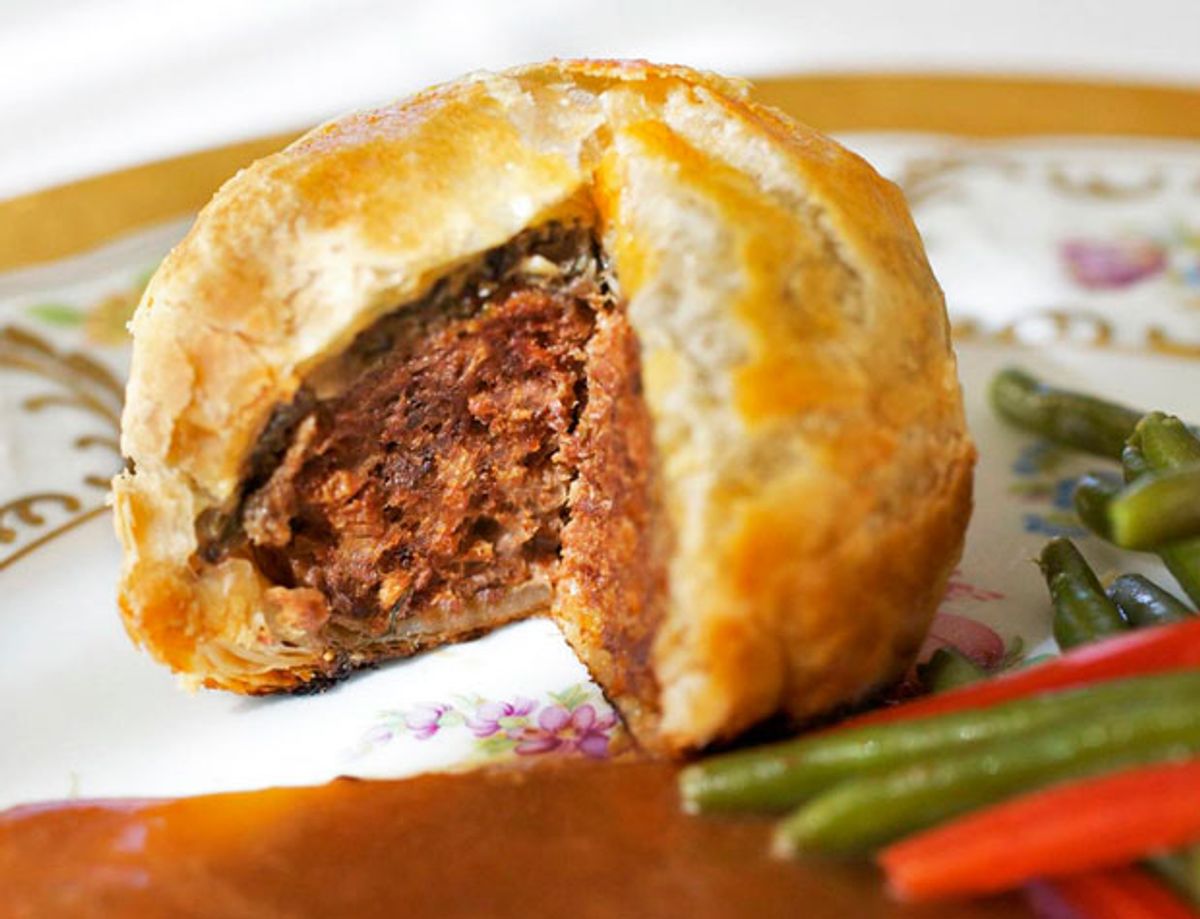Meat is complex, and faking it isn't easy. Some of the biggest food companies in Europe and North America have been trying for decades—with mostly dismal results. But over the past year or so, some new offerings and improved older ones with better texture and flavor have come on the market. If you tried one or more meat substitutes years ago and weren't impressed, or are still shuddering from the experience, it's time to give them another chance. This guide will help.
Although I'm not a vegetarian, I am an epicure of ersatz meats, a connoisseur of fake fillets. I have been eating them for more than 15 years. I've tried mock meats made from soy, wheat gluten, and fungus, as well as various mixtures. I've used them in Italian, Tex-Mex, Chinese, Latin-American, and other dishes. I have sprung them on my finicky grade-school-age children from time to time to gauge their reactions (mostly negative, with a few notable exceptions). I've also eaten creations made and served only in some expensive Manhattan restaurants. Here, I've distilled my experiences into some specific recommendations. I have limited this review to the foods I've tried, of course, which means it covers mainly products available in Canada and United States, where I live.
My first recommendation is to avoid anything made by Tofurkey (owned by Turtle Island Foods) and Yves (owned by Hain Celestial Group). All the products under those brand names are either rubbery or oddly flavored. Many are both. The ubiquity of those brands in U.S. supermarkets is a source of continuing befuddlement to me, and it has probably done more than anything else to perpetuate the somewhat negative image of these foods. (People's appraisals are not universally disparaging, though: In his generally excellent book The Engine 2 Diet author Rip Esselstyne praises Yves's hot dogs. But the ones produced by Field Roast—see below—are much better.)
Morningstar Farms is another ubiquitous brand in the United States. Owned by the Kellogg Company, it is the largest producer of vegetarian foods in the country. Morningstar uses a good combination of soy protein and wheat gluten in its burgers and meat analogues. However, some of them contain disodium inosinate, disodium guanylate, and autolyzed yeast extract, which in turn contain, or result in, monosodium glutamate. MSG is known to cause adverse reactions in some people. If MSG doesn't bother you, then dig in. Morningstar's burgers and breakfast patties are quite tasty. But bear in mind that Lightlife Foods (see below), somehow manages to make reasonably tasty foods without those ingredients.
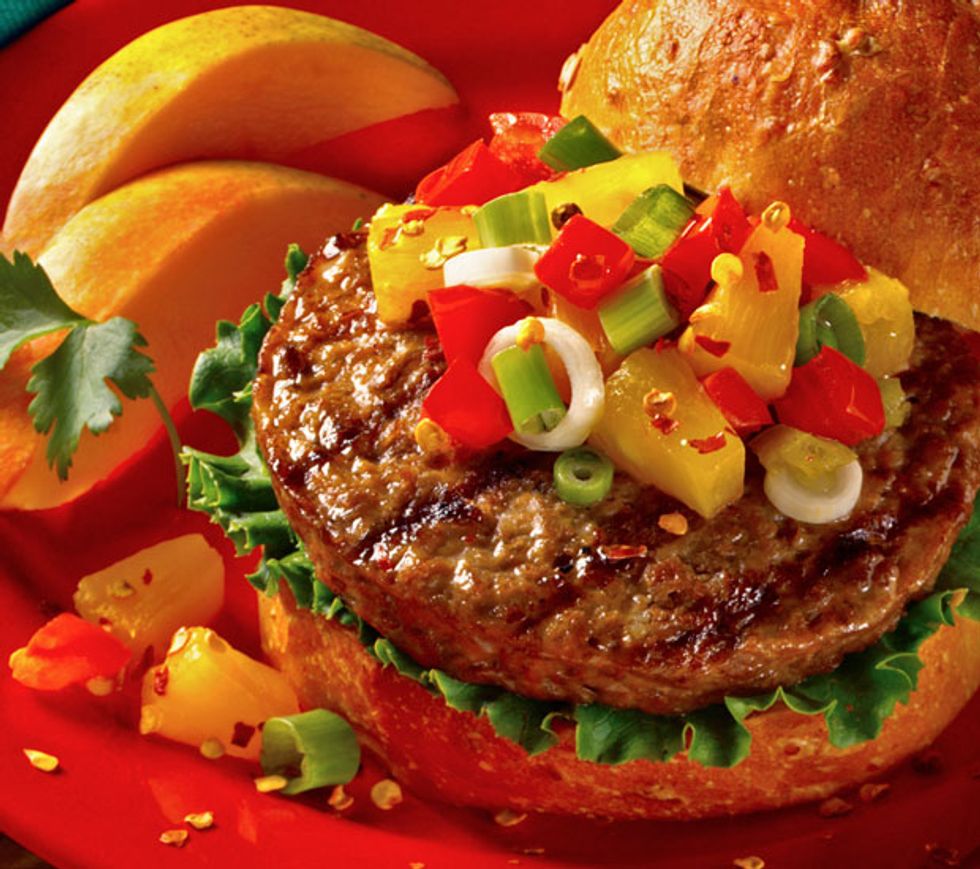
Boca Foods Co. (owned by Kraft Foods) is another megavega brand that you shouldn't bother with. Boca's products are typically mealy and bland. And many of them contain such MSG stand-ins as disodium inosinate, disodium guanylate, and hydrolyzed corn protein.
But enough grousing. All mocking aside, there are quite a few worthy mock meats out there. Here are the companies and specific products I recommend.
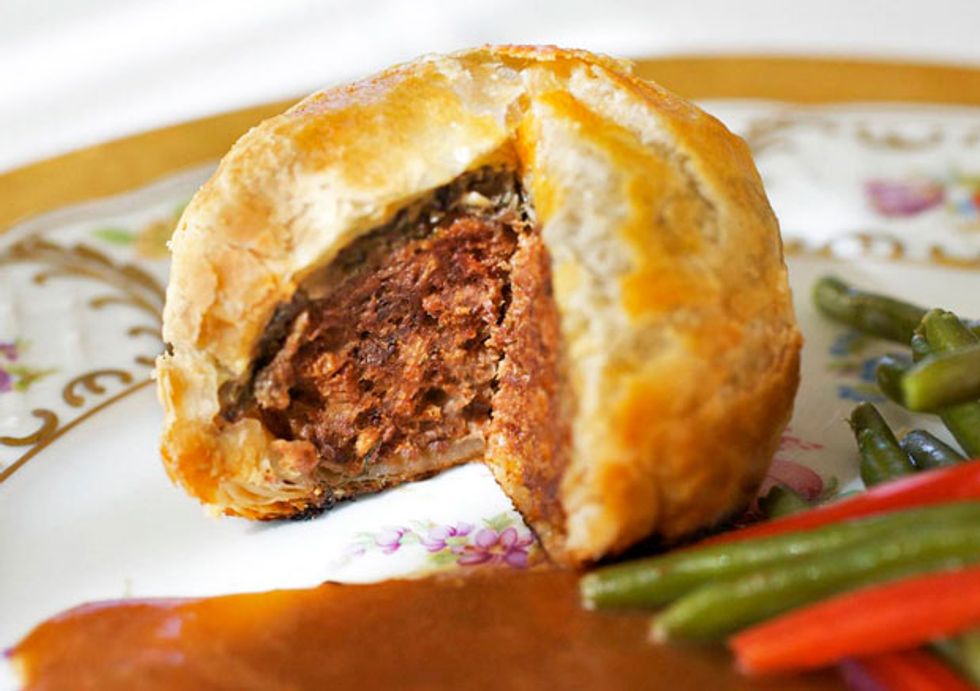
Match Meats: Match Meats was the most consistently outstanding of the brands I sampled. This St. Louis-based producer mostly serves its regional area in Missouri, but it recently began offering its products in the Organix market in Los Angeles. I tried five products: Mediterranean Stuffed Chicken, Crab Cakes, Stuffed Pork Chops, Ground Beef, and Italian Sausage. They were all impressive. In the prepared foods, the mock meat's fibrous structure and mild flavor were deftly enhanced with seasonings. To try the ground “beef," I made patties and fried them in olive oil and served them on a bun with fried onions, lettuce, tomato, and the usual condiments. The result was a vegan burger that was as good as one I had at Café Blossom in New York City that cost US $13. Hopefully, Match Meat's growth trend will continue, but until you can get its products in a store near you, they are available online for shipment within the United States.
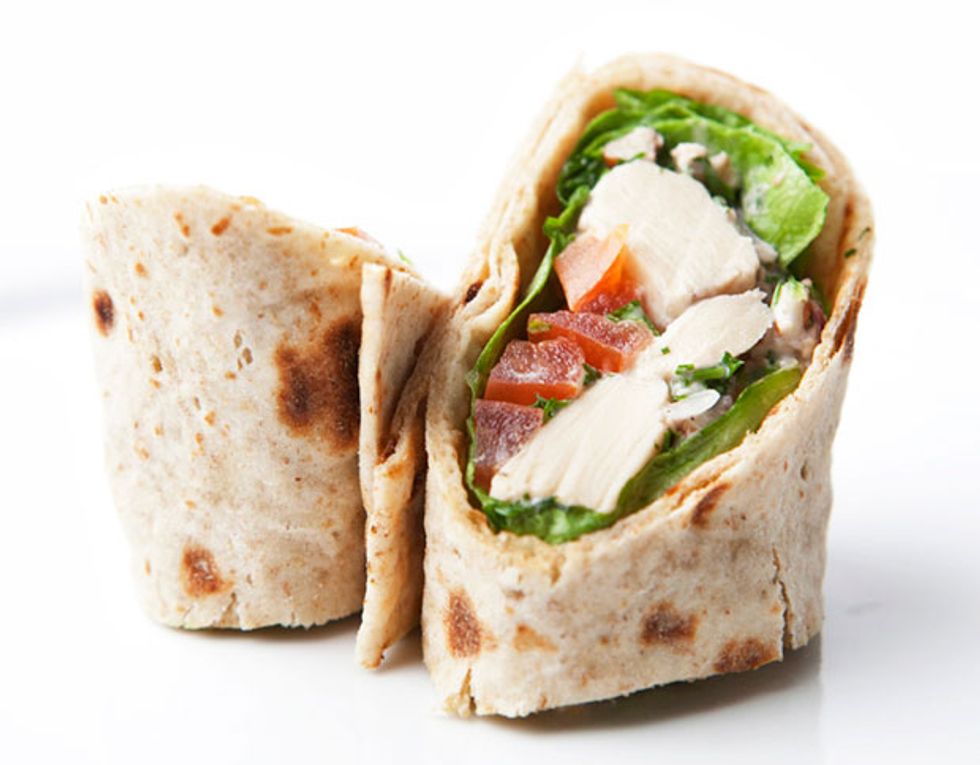
Beyond Meat: The company got off to a flying start in 2012, with enthusiastic coverage in The New York Times and on National Public Radio. Part of the buzz came from the company's high-profile backing, which included Twitter founders Evan Williams and Biz Stone. And then Bill Gates heaped praise on the start-up, singling it out for praise in an online slide presentation titled “The Future of Food." So does the product live up to the hype? Mostly, it does. I found the texture of Beyond Meat to be remarkably chickenlike. When you bite into it, it has a fibrous, springy feel that's uncanny in its resemblance to cooked chicken. But the taste isn't quite as convincing. It's not unappealing, but it isn't much like chicken. That shortcoming can be overcome, I found, by using the product in burritos, chillies, pizzas, salads, and sandwiches, where its flavor is in the background. If somebody could make this stuff taste more like chicken, it would be amazing. Until then, it's simply very impressive.
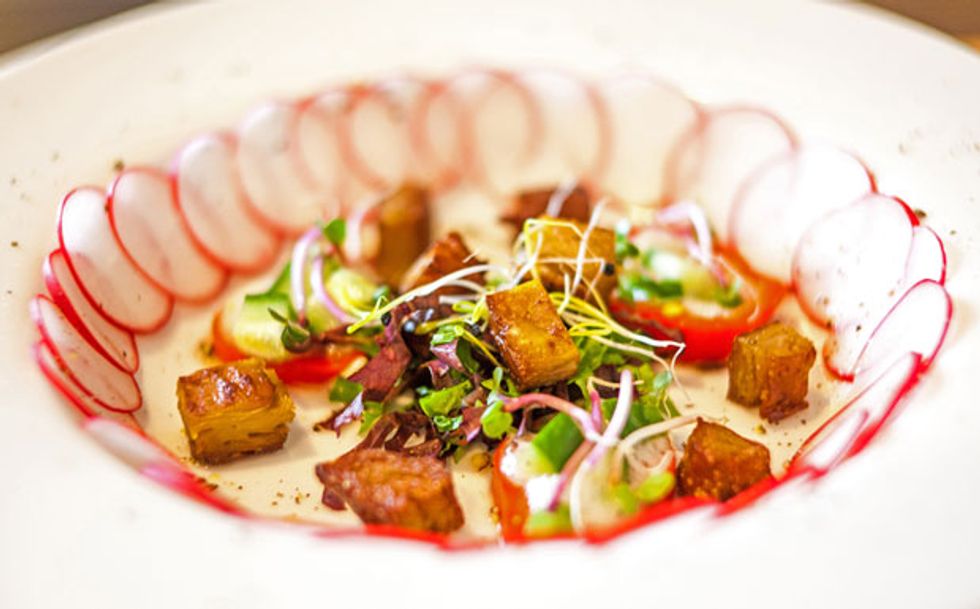
Plenti: Introduced in 2010, this Dutch product is produced by Ojah, based on technology developed at Wageningen University & Research Centre in the Netherlands. Ojah typically sells it in bulk, unflavored, to retail outlets that flavor it and sell it under their own brand names and in flavors including chicken, pork, tuna, and even smoked eel. I obtained some unflavored Plenti during a trip to the Netherlands, which I marinated in a broth made from vegan chicken-flavored bouillon cubes. I found the texture of the product to be amazingly like chicken, similar to Beyond Meat's. But my clumsy flavoring attempt served mainly to make me wish I'd been able to sample some of the many professionally flavored versions. In 2012, Ojah was declared the most innovative small-to-medium-size entrepreneurial company in the MKB Innovation Top 100 contest, a prestigious national honor in the Netherlands.
Field Roast: For the retail market, Field Roast offers vegan sausages, deli meats, hot dogs, and various forms of meat loaf. I am fond of everything the company makes except the meat loaf. I have used the very spicy chipotle-flavored sausages in paellas, gumbos, and burritos. I particularly like the smoked apple-sage sausages, which work well with spaghetti and red sauce, in a cornbread stuffing, or on a whole-grain hot-dog bun with Dijon mustard. Field Roast sausages are among the few mock meats that my 12-year-old son will eat happily. I am also impressed with the company's luncheon meats, which it calls “deli slices." The Wild Mushroom is particularly delectable. Field Roast uses wheat gluten as the protein, so if you are avoiding soy for some reason, they are a good choice.
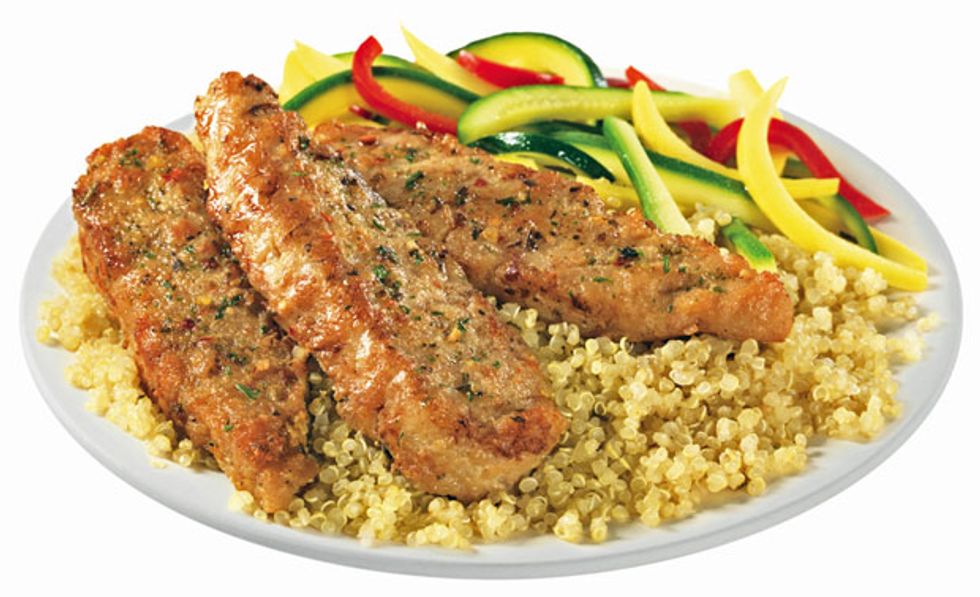
Lightlife Foods: Lightlife Foods projects a folksy, mom-and-pop vibe on its website. A recent page was titled “Veggie 101 with Mandy." Who's Mandy? Why, she's “Mandy Ingber, the creator of Yogalosophy," who has been “guiding people to love their bodies and lifestyles for over 16 years." So it may come as a surprise that Lightlife is owned by megaconglomerate ConAgra. Lightlife has a noteworthy fake chicken, which is sold as Smart Tenders, Smart Cutlets, Smart Strips, and the like. It contains both wheat gluten and soy. The texture isn't quite as convincing as Beyond Meat's, but the flavor struck me as slightly more chickenlike. Because they contain small amounts of egg white, many of Lightlife's offerings are not vegan.

Quorn: I have one word for you: mycoprotein. Quorn would rather you didn't refer to it as fungus, although many people do. But Quorn is having the last laugh. From a single faux chicken in 1985, the company's product line has grown to include 23 offerings in five categories that are sold in 10 countries. And the stuff is good, too. For most items, the combination of taste and texture is as appealing as any comparable product on the market.
Gardein: Gardein was started in 2006 by mock-meat magnate Yves Potvin, who also started Yves and reaped a tidy fortune when he sold it to Hain in 2001. As does Beyond Meat, Gardein makes its product from a proprietary mix of soy and pea protein and other ingredients. This Canadian company, based in Richmond, British Columbia, has 30-odd offerings, in two lines: frozen and refrigerated. They vary quite a bit. I found the meatballs to be dry and the BBQ skewers to be bland. And although the company supposedly uses an extrusion process very similar to Beyond Meat's, some of Gardein's faux chicken offerings are rubbery and lack the fibrous nature of Beyond Meat's product. But Gardein's BBQ pulled shreds aren't bad, especially if you serve them as sliders, on little whole-grain buns with coleslaw.
